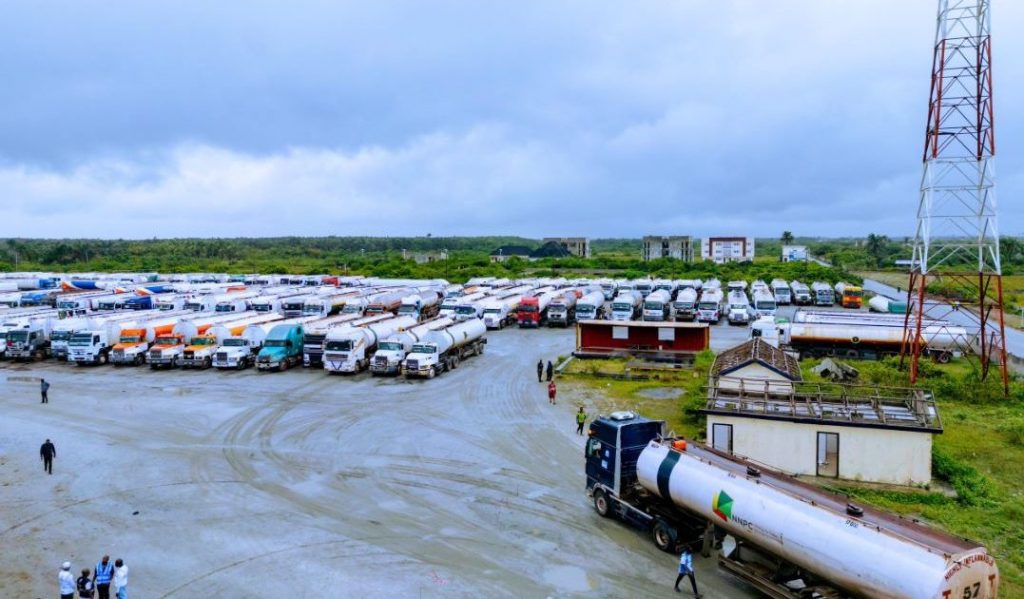The Dangote Petroleum Refinery recently clarified that it has not received authorization from the Nigerian National Petroleum Company Limited (NNPCL) to supply Premium Motor Spirit (PMS), widely known as petrol, to members of the Independent Petroleum Marketers Association of Nigeria (IPMAN). This announcement came amid escalating tensions, as oil dealers under the Petroleum Retail Outlet Owners Association of Nigeria expressed frustration over the refinery’s lack of communication regarding petrol pricing and supply. Abubakar Maigandi, the National President of IPMAN, reported that despite being near the Lekki-based refinery, his members were unable to collect petrol for nearly four days, contradicting Dangote Group President Aliko Dangote’s claim that ample petrol was ready for loading.
Maigandi’s assertion implied that if the refinery indeed had over 500 million litres of petrol available, there should have been no obstacles preventing marketers from collecting it. He emphasized that his members were eager to purchase the product directly from the refinery but faced access issues even after making their payments. Supporting Maigandi’s concerns, Billy Gillis-Harry, the National President of PETROAN (Petroleum Products Retail Outlets Owners Association of Nigeria), stated that they had been attempting to secure business discussions with Dangote since 2022 but to no avail. Their inability to reach an agreement has led to a growing sense of urgency among retailers who feel sidelined by the refinery’s communications.
In response, Anthony Chiejina, the Chief Branding and Communications Officer for Dangote Group, stated that IPMAN members had not made payments to the refinery directly; rather, payments were submitted to the NNPC. He reiterated that the refinery currently lacks direct business dealings with IPMAN and has not been authorized to sell PMS to its members. Chiejina emphasized that without direct engagements with IPMAN, the ongoing discussions regarding supply and pricing cannot bear fruit. He clarified that although the refinery has the capacity to meet national fuel demand—processing up to 2,900 trucks per day—issues persist due to lack of direct transactions with marketers.
Chiejina’s remarks included a strong admonition against public speculation, warning that unfounded assertions can hinder efforts towards economic stability spearheaded by President Bola Tinubu. He encouraged stakeholders to collaborate and consolidate efforts rather than engage in media disputes, suggesting that such actions are unpatriotic. The Dangote Group’s message highlights the need for a joint approach to the problems surrounding fuel distribution, aiming to foster a more transparent and cooperative marketplace free from unnecessary conflict.
Amid these discussions, PETROAN expressed disappointment over Dangote’s comments regarding the refinery’s petrol capacity, underscoring the need for a definitive petrol pricing announcement. According to Dr. Joseph Obele, the National Publicity Secretary of PETROAN, while Dangote indicated that marketers should come and collect fuel, this statement alone does not suffice to drive purchasing decisions. He pointed out that similar entities, like NNPC Retail, are selling petrol at significantly higher prices, which may lead potential buyers to hesitate unless Dangote provides a more appealing price.
As the situation unfolds, the Major Energies Marketers Association of Nigeria (MEMAN) reassured the public that there is sufficient petrol available to meet consumer needs, urging against panic buying. MEMAN’s Chief Executive Officer, Clement Isong, articulated confidence in the liquidity and sustainability of petrol supplies, emphasizing that deregulation allows for improved efficiency. He noted that significant stockpiles were readily accessible both at the refineries and through NNPC sources. Furthermore, recent data indicated the landing cost of petrol and other petroleum products, suggesting that despite the fluctuating dynamics within the marketplace, there is a stable supply chain currently in place.
The interplay between the Dangote Petroleum Refinery, IPMAN, and other stakeholders encapsulates the complexities of Nigeria’s oil market, highlighting the necessity for clear communication and established agreements. The urgency for a transparent pricing framework and equitable distribution mechanisms has never been more imperative, as involved entities aspire to navigate this evolving landscape effectively.


